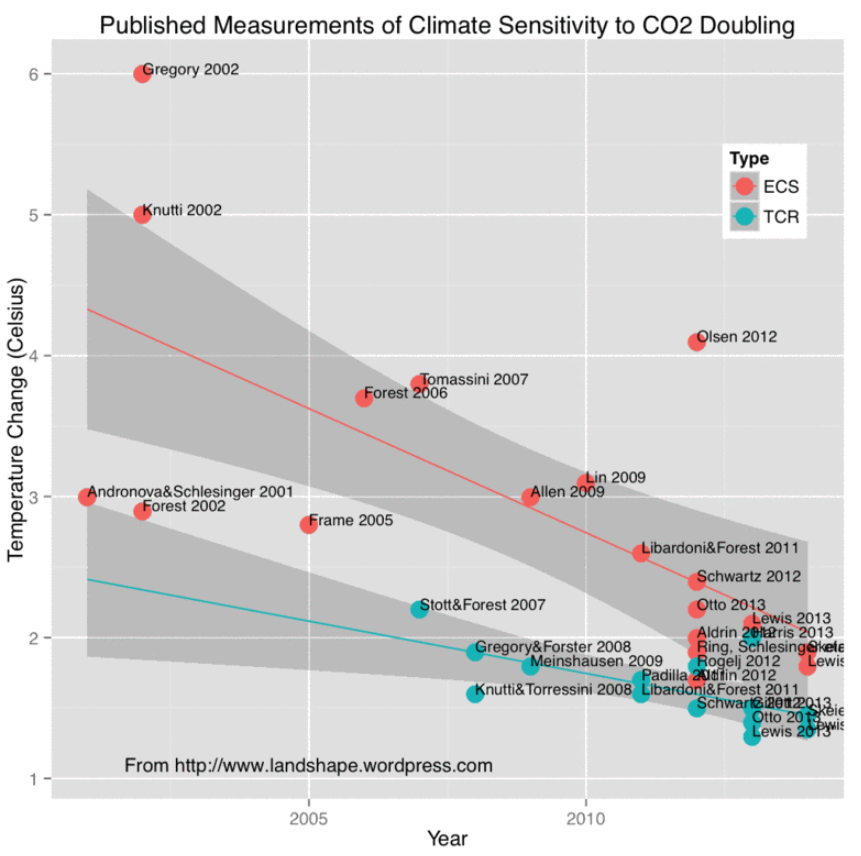Note: The NTZ site remains crippled due to WordPress upgrade from version 4.2.2 to 4.2.3. Until the issue gets resolved new posts can only be viewed through the NTZ homepage. Reader comments function is also disabled by the recent upgrade.
=========================================
At the European Institute for Climate and Energy (EIKE), retired climate scientist Hans-Joachim Lüdecke and two colleagues have responded to the Senate testimony given by Pat Michaels (video follows).
Video of Prof. Patrick Michaels before a Senate committee. Transcript here.
Lüdecke and his colleagues agree with Dr. Michaels’ assertion that the projected increase in the earth’s temperature from CO2 is getting smaller and smaller.
F. Gervais, C.O. Weiss and H.J. Lüdecke write at EIKE:
“Anyone who has been tracking the scientific journals on climate science has observed over many years that the supposedly expected temperature increase from CO2 has steadily been decreasing over the years.”
At EIKE Lüdecke and his colleagues provide the following chart from Landshape to back up the point:
The above chart from landshape.wordpress.com/2015/06/20/6921/ is a graphical compilation of published CO2 climate sensitivity results since 2000. The trend for a temperature increase from a doubling of atmospheric CO2 (so-called climate sensitivity) has fallen from over 4°C to under 2°C today.
This means that all the assumptions and claims made by the IPCC in the past were based on hype and totally inaccurate results.
Gervais, Weiss and Lüdecke conclude in their EIKE piece:
“We can now tell politcians that they can call off the warnings. There’s no chance of a global warming of more than 2°C .
The decrease in the projected temperature rise from CO2 will continue on its present trend. By 2025 the warming by CO2 will be close to zero. We can thus expect that the quality of the forecasts will increase to the point where they will actually reflect reality.”






Recent Comments